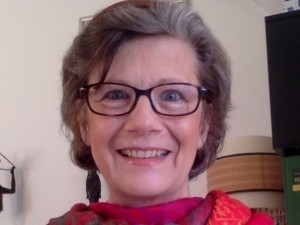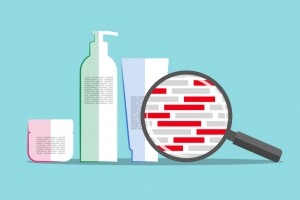Cosmetics claims expert: Social media a ‘virulent source’ of misinformation

The social media boom has created an architecture of misinformation that, if left unchallenged, will have damaging long-term effects on the beauty industry, warns a cosmetic claims consultant.
In 2019, there were 3.4 billion social media users worldwide – a figure set to soar to 4.41 billion by 2025 fuelled by the increase in mobile device use, according to Statistica. In January, this year, social network penetration worldwide sat at 49%, with Facebook leading the charge ahead of Instagram.
For beauty – an industry highly present across social media channels worldwide – what sort of implications would this growth have?
Dr Theresa Callaghan, CEO and owner of Callaghan Consulting International, a cosmetic claims development and R&D consulting firm, said the rise wasn’t necessarily a good news story for beauty brands or the wider cosmetics industry.
Beauty consumers face an ‘architecture of misinformation’
“In this current time that we find ourselves in – and I’m not talking about COVID-19 here – what social media has done is start to become very destructive, and not just in cosmetics, just in life in general,” Callaghan told CosmeticsDesign-Europe.
“And what I’ve been finding is that in the cosmetics industry, credible and authoritative science and evidence seems to be quickly eroded by this architecture of misinformation that we see out there and that’s perpetrated by, and unchallenged by, a climate driven by fear and irrationality,” she said.
Callaghan, who had 30+ years of experience in research, clinical trials and cosmetic science, said scientists and formulators working in the beauty industry were constantly having to “sift through fact from fiction” for marketeers and consumers because of misinformation being spread on social media.
“We’re finding that social media is basically a virulent source of these ‘whisper campaigns’ that sow confusion in the minds of consumers. And as a result of that, deliberately or non-deliberately, this discredits industry. So, the scientists are finding themselves constantly sweeping up to tidy things up.”
‘There’s no such thing’ as clean beauty and chemical free
The ‘clean beauty’, ‘non-toxic’ and ‘chemical free’ movements were perfect examples of such misinformation gaining ground, Callaghan said.
“There’s no such thing as clean beauty. There is no definition for clean beauty. What is clean beauty? Nobody seems to know what the definition is.”
And brands were developing their own varied definitions for the consumer, she said, working competitively against one another. “Even though we’re an industry of colleagues B2B, we are competitors when it comes to the consumer. So, every company is going to have its own way of communicating to the consumer.”
And these ‘clean beauty’ definitions had inevitably gained ground on social media, she said, as had attempts to define ‘chemical free’.
“There is no such thing as chemical free anything; we are chemicals, life is chemicals and we need to understand this.”
“…It’s still the age-old story where marketing and copywriters are charging off at top speed, or at least driving the car, and regulatory affairs and R&D and product development are doing the backseat driving trying to keep the car on the road.”
Callaghan, who had self-published a book entitled Help! I’m covered in adjectives: Cosmetics claims & the consumer, said industry had to start prioritising consumer education rather than pushing certain ideas and claims that didn’t stand up to scrutiny.
Getting B2B and B2C beauty comms right – taking away the ‘dream’
Asked how exactly the beauty industry could do this, and work to counter the damaging side of social media, Callaghan said brands and every professional working in the field had to put aside competition and work collectively with goodwill.
A start, she said, would be getting business-to-business (B2B) messaging right. “If we don’t get our own B2B messaging right then business-to-consumer (B2C) will become extremely difficult.”
It was then critical beauty brands stayed “truthful” when communicating with consumers on pack, in-store and on social media, and adjusting what the focus was in these claims and storytelling would assist this.
“I think if we took away the ‘dream’ of cosmetics and sold the ‘honest reality’, this may help. We could leave the consumer to create the ‘dream’ – call it personalised cosmetics if you like – not the industry; for example, through the senses, such as the feel of the product or the odour. The facts would be dealt with objectively by the brand and the dream subjectively by the consumer.”
“…We can’t afford to stick our industry head in the sand and pretend social media mischief will go away; it won’t, not any time soon at least. I’ve been here for more than 30 years, and seducing the consumer is still going hand in hand with misleading them, either deliberately or non-deliberately,” Callaghan said.
Social media, specifically, was a “a global entity” which meant cosmetic messaging destined for the EU market could reach consumers in North America or vice versa, she said, which was one source of potential consumer and even industry confusion, she said. Couple this with a raft of online influencers, bloggers and vloggers who did not fully understand the beauty formulations and final products they were promoting, and Callaghan said misinformation spread fast.
COVID-19 could give time for beauty brands to assess next steps
So, could we imagine a future where the social media world was filled with honest portrayals of beauty products?
“We will get there because it makes good business sense to do so,” she said. “The cost of not doing so will be complete loss of consumer trust, industry credibility will be severely damaged, companies will go out of business due to loss of revenue, jobs will be lost and there will be a loss of industry, business and brand integrity.”
“…It will take a huge effort all round. It’s as if we need to press a stop button, sort out the mess, and then restart. Perhaps COVID is an excellent opportunity as a step in the right direction; to see where the industry needs to go, rather than just where it wants to go in order to make a fast buck,” Callaghan said.



![Lush is closing all global social media accounts across Instagram, Facebook, TikTok and Snapchat and will instead invest in 'better communication channels elsewhere' [Getty Images]](/var/wrbm_gb_food_pharma/storage/images/_aliases/wrbm_medium/publications/cosmetics/cosmeticsdesign-europe.com/headlines/business-financial/lush-to-close-instagram-facebook-tiktok-and-snapchat-global-accounts-for-user-safety/13036150-1-eng-GB/Lush-to-close-Instagram-Facebook-TikTok-and-Snapchat-global-accounts-for-user-safety.jpg)
![The boom in social media and video platforms like Instagram, Facebook and TikTok and work with influencers means cosmetic companies have much more to monitor around product claims [Getty Images]](/var/wrbm_gb_food_pharma/storage/images/_aliases/wrbm_medium/publications/cosmetics/cosmeticsdesign-europe.com/article/2021/08/02/cosmetic-claims-regulations-and-substantiation-in-the-digital-age-of-instagram-tiktok-and-facebook/12701975-1-eng-GB/Cosmetic-claims-regulations-and-substantiation-in-the-digital-age-of-Instagram-TikTok-and-Facebook.jpg)




















